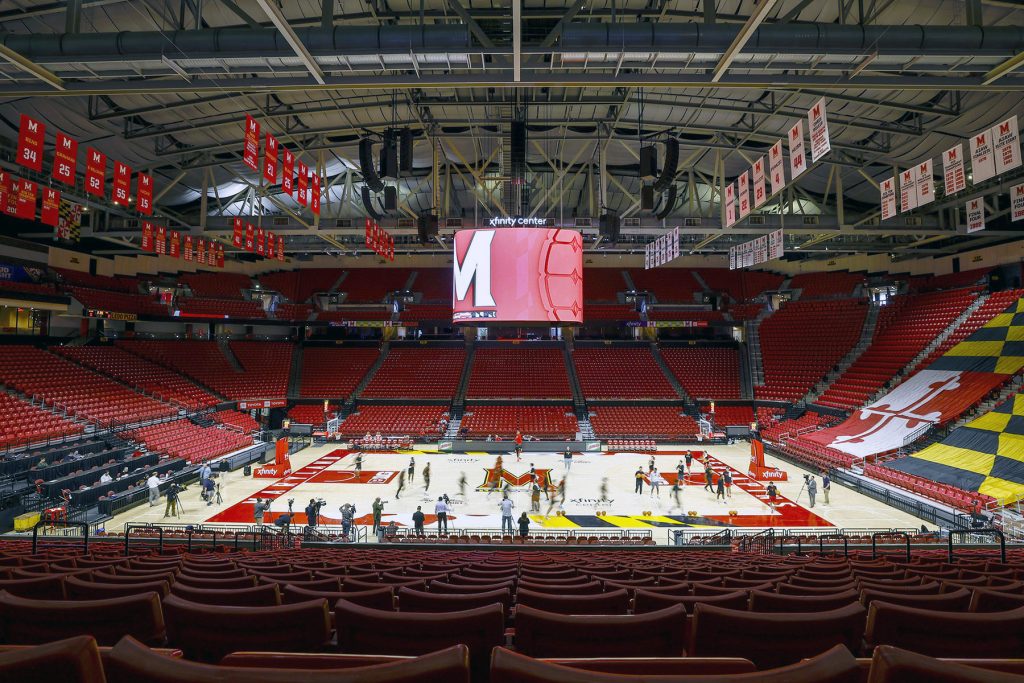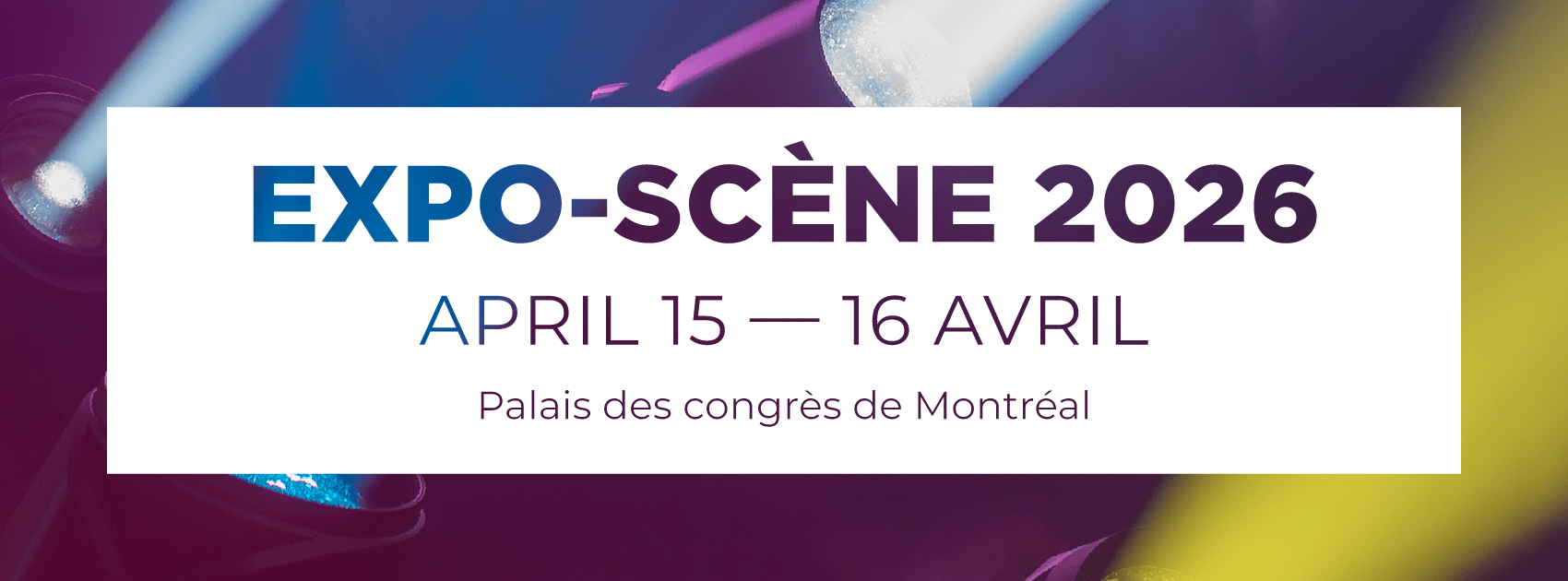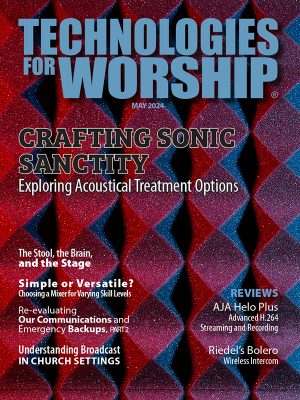
Audio and video have long been the dynamic duo of immersive experiences, and the University of Maryland’s XFINITY Center arena has just orchestrated their perfect harmony. In a notable industry collaboration, Daktronics, renowned for its cutting-edge video displays, has teamed up with audio innovator L-Acoustics to elevate the fan experience for this year’s college basketball season. The newly installed L-Acoustics Kara IIi sound system works in concert with a state-of-the-art 12-display center-hung video system, offering fans a game-day experience that engages both ears and eyes. This audio-visual fusion, expertly integrated by Daktronics and unveiled in August, signals a new era in arena entertainment technology, setting a high bar for sports venues.
“Daktronics has been integrating audio into its sports-venue video systems for years now, but this is the very first time we’ve collaborated with L-Acoustics for audio, and the result has been spectacular,” says Daktronics Audio Applications Engineer David Sturzenbecher. “The University had been using L-Acoustics components for its portable and temporary systems for some time in various applications, and they always had good experiences with them. So they brought L-Acoustics into the fold at the very beginning of this project.”
The new sound system at the XFINITY Center, which hosts more than 100 events a year, comprises over 100 Kara IIi loudspeakers. The main system is made up of two arrays of 14 Kara IIi, plus six more arrays of 12 each, as well as four X12 speakers suspended beneath the center display for direct down-firing court coverage. And each of the arrays, which flank the four 18-by-21-foot main video displays and four 16.5-by-6-foot underbelly displays angled toward the side and end lines, are backed by a cardioid trio of SB18 IIi subs. A dozen larger KS28 subs are also part of the LFE design, and the entire system is powered by a combination of 16 LA7.16i and three LA12X amplified controllers.
Sturzenbecher says that the deployment of the LA7.16i amplified controllers makes an important difference in signal management for the venue, with its implementation of the AES67 networking protocol. “AES67 allows us to easily integrate with the QSC Q-SYS Core network processors in the system, which gives the arena staff an improved ability to monitor and manage system performance parameters, such as driver impedance and amplifier health,” he explains. “L-Acoustics is more than just great sound; it’s also well integrated into the larger system.” And L-Acoustics offered still more. “The applications and sales teams were there whenever we needed them,” he says. “The support was excellent.”
Josh Clayton, the University of Maryland’s Assistant AD, Broadcast and Video Operations, points out that while the XFINITY Center is home to the University’s Terrapins men’s and women’s basketball teams, it’s also competing with Big Ten and other college sports, as well as six professional sports franchises: the NFL Ravens and Commanders, MLB Orioles and Nationals, NBA Wizards, and NHL Capitals. “It’s a very high bar in this area when it comes to entertainment and sports experiences, and we knew we needed a serious ‘wow’ factor when it came to sound and video,” he says.
Several different L-Acoustics models were considered for the line arrays, and Clayton says it quickly became clear that the Kara IIi were more than enough to meet that lofty goal. “We didn’t need to go for a full touring rig to be able to achieve tour-level sound quality using the Kara,” he says. “We knew we needed to make the experience here really impactful, and between the Kara and subs, we nailed it.”
Like Sturzenbecher, Clayton is also a fan of how the new sound system interfaces with the QSC management system. “For instance, gymnastics is totally different from a basketball game, and they have very different audio needs,” he explains. “We need one set of speakers for the floor routines while the rest of the system has to provide highly intelligible speech to the audience areas of the venue. The way this system is set up, each line array has three individual zones that we can manage separately from each other, and it’s even broken out so that we can separate the main arrays from the subs and the center-hung array. So, for instance, we can turn on the X12 speakers and the subs as a separate system to cover the court for practices while the rest of the system plays other program material. We expected a lot from this sound system, and we got it.”
For more details on U of MD’s XFINITY Center, visit www.umterps.com/facilities/




